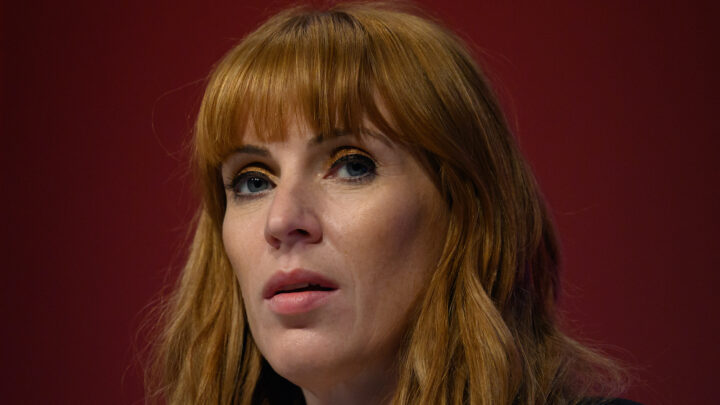Hopefully the end for No Platform
A leading anti-fascist group has moved away from censorious No Platform policies. It’s time for others to follow suit.

Credit where credit’s due. In a recent interview for the Huffington Post, the head of anti-fascist campaigning organisation Hope Not Hate has dismissed ‘No Platform’ policies as ‘outdated’ and recognised that in combating far-right groups, Hope Not Hate has ‘to be in the argument’, and has to ‘expose their ideas’. Enforcing No Platform apparently is ‘no longer a central plank of [its] work’.
And about time, too. Hope Not Hate has long been one of the most censorious of the anti-fascist groups. Its coordinator, Nick Lowles, has previously claimed the BBC should not give any platform to the far-right British National Party (BNP), actively lobbied for and celebrated the banning of English Defence League (EDL) marches and, as late as November last year, patted the National Union of Students (NUS) and other groups on the back for preventing a BNP organiser from speaking at the Cambridge Union Society.
This is no Damascene conversion, however. Lowles has already taken to Twitter to reassure followers that he still thinks No Platform is still ‘desirable’ in places where it can be enforced, such as university campuses. And many of his key reasons for leaving the policy behind are not principled, but pragmatic. In a blog post published yesterday, Lowles claimed that it wasn’t practical to try to silence democratically elected councillors – of which the BNP has a handful.
In contrast to the crude ‘smash the fash’ arguments you hear on many anti-EDL demonstrations, he also recognises the nature of the extremist ideas the group is opposed to is changing, and ‘not all the groups we now oppose are fascists who follow an ideology that is so repugnant that it is easy to explain why they should not be allowed to have a platform’.
It appears that the rise of the internet and social media has caused the greatest problem for those championing No Platform policies. Trying to eradicate access to fascist ideas entirely has become impossible when anyone can access them on their home computer or smartphone. Equally, according to Lowles, ‘The rise of the internet and social media has been accompanied with changing attitudes to freedom of expression and censorship. Arguments about silencing ideas are far less acceptable now than they once were.’
But the shift is not just because times have moved on and it’s not as easy to silence groups as it once may have been. Lowles believes that in countering so-called fascist groups, ‘It is about defeating their ideas rather than just beating them. Working in the communities targeted by racists and fascists, engaging with ordinary people and persuading them to not support these groups is now our priority.’
In taking this approach, it appears that Hope Not Hate has recognised one of the fundamental problems with No Platform policies, which have long been outlined by spiked. That trying to silence the views of people you disagree with – no matter how repugnant – is a judgement on the public more than a judgement on the speaker. It is effectively saying that members of the audience should not be trusted to make up their own mind about what a speaker is arguing, and realise that what they are saying is mad. The decision has to be made for them, lest their vulnerable brains become infected by the speaker’s views.
Furthermore, as advocates of No Platform policies have found after a spate of successful campaigns to overthrow them at universities across the UK, people don’t like to be told they’re too vulnerable to be allowed to hear arguments for themselves. Such a sentiment behind No Platform is patronising, paternalistic and does little to win an audience.
And it does little to win the debate either. Often, high-profile No Platform campaigns give far more publicity to the subject of the campaign than they would have received otherwise. Take, for example, Nick Griffin’s highly controversial appearance on the BBC’s Question Time in 2009. Partly as a result of the hype by anti-fascist campaigns, that episode attained over eight million viewers, almost five million more than Question Time’s previous peak during the MPs’ expenses scandal. And even if the campaign is successful, the ideas are not defeated, they are simply pushed underground, made – if anything – more potent by the fact that they haven’t been aired in the public arena and subjected to critical debate.
Hope Not Hate, then, is right to recognise that when it comes to countering far-right groups, it is ‘about defeating their ideas rather than just beating them’. The group should remain consistent and repeat such claims the next time there is a vociferous campaign to deny a platform to a far-right leader or ban a demonstration. Otherwise, as Lowles says, ‘we sit on the sidelines, condemn them, and refuse to engage, that’s when we look like the pro-censorship group’.
Quite. But from the NUS, to anti-fascist publications such as Searchlight (which used to be the organ of Hope Not Hate before a split in 2011), many organisations are still championing No Platform policies and, in doing so, revealing contempt for the public, and pushing the ideas they oppose underground. In doing so, they don’t just look like the pro-censorship group; they are the pro-censorship group (and often advocating more authoritarian ideas than have ever been expressed by the groups they are trying to silence). Let’s hope more advocates begin to recognise No Platform not only as redundant, but wrong in principle and begin to drop this utterly unproductive, censorious policy for good.
Patrick Hayes is a columnist for spiked.
To enquire about republishing spiked’s content, a right to reply or to request a correction, please contact the managing editor, Viv Regan.








Comments
Want to join the conversation?
Only spiked supporters and patrons, who donate regularly to us, can comment on our articles.